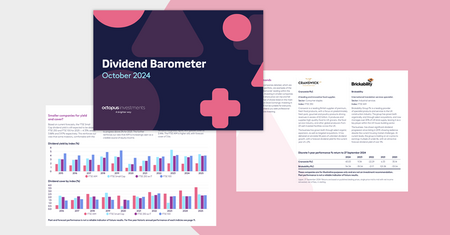GuideBusiness Relief
Inheritance tax frequently asked questions
When do you have to pay inheritance tax?
Inheritance tax (IHT) must typically be paid by the end of the sixth month after the person’s death. If payment is delayed, HMRC may charge interest on the outstanding amount.
Will I have to pay inheritance tax on transfers to my spouse when I die?
No, transfers between married spouses or civil partners are generally exempt from inheritance tax. This means your spouse can inherit your estate without any IHT liability. Additionally, any unused portion of your IHT allowance (the £325,000 ‘nil-rate band’ (NRB) ) can be transferred to your spouse, potentially doubling the allowance to £650,000 upon their death. Where applicable, any unused residence nil rate band (£175,000) can be transferred to a surviving spouse, also doubling the allowance to £350,000. The RNRB is an additional IHT allowance relating to a home that you own and is available when certain conditions are met.
<strong>How do I calculate the total value of my estate in the UK?</strong>
To calculate your estate’s total value, at a high level you need to add up all your assets, including but not limited to:
- Property and land
- Cash, savings, and investments
- Pensions ( (if not yet drawn) (from 6 April 2027) )
- Life insurance policies (if not written into trust)
- Personal belongings, such as jewellery and vehicles
- Gifts and transfers into trusts made in the last 7 years of death.
Next, subtract any debts, such as mortgages or loans, and funeral expenses. The remaining total is the net estate value, then deduct any available NRB and RNRB allowances, then applying 40% IHT.
What is the 7-year rule in inheritance tax?
The 7-year rule refers to gifts made during a person’s lifetime. If you give away assets and survive for seven years after making the gift, they are generally exempt from IHT. However, if you pass away within seven years, the gift will be subject to IHT. Taper relief may reduce the tax if the gift was made more than three years before death.
What assets are free from inheritance tax?
Several assets can be free from IHT, including:
- Gifts to a spouse or civil partner
- Gifts to charities or political parties
- Some investments qualifying for Business Relief (e.g., shares in certain unlisted companies)*
- Qualifying agricultural property*
These exemptions and reliefs can help reduce the taxable value of your estate.
* From 6 April 2026, a 100% IHT relief will continue for the first £1 million of combined agricultural and unquoted Business Relief qualifying property (e.g. sole traders, partnerships, unquoted companies). Amounts over the £1 million will attract 50% IHT relief. Business Relief qualifying companies listed on the Alternative Investment Market (AIM), will attract 50% IHT relief irrespective of the investment amount.
Can I give my house to my family to avoid inheritance tax?
While you can give your house to family members, it is not always an effective way to plan for IHT. If you continue to live in the house HMRC may view it as a “gift with reservation of benefit,” meaning the property remains part of your estate for IHT purposes. However, if you move out or pay market rent, the gift may be exempt after seven years under the 7-year rule.
Will my children pay inheritance tax on my house?
Your children may have to pay IHT on your house if the total estate (including the house) exceeds the £325,000 nil-rate band. However, the residence nil-rate band (RNRB) provides an additional allowance of £175,000, allowing up to £500,000 (or £1 million per married couple) to pass tax-free if you leave your home to direct descendants (such as children or grandchildren). The RNRB allowance tapers down if your estate exceeds £2 million.
What other taxes do my heirs have to pay on their inheritance?
In most cases, Inheritance Tax is the main tax applied to estates. However, beneficiaries may need to consider:
- Capital Gains Tax (CGT): If assets like property or shares increase in value from your death and before being sold.
- Income Tax: If the estate generates income (e.g., rental income or dividends) before distribution.
- Stamp Duty Land Tax (SDLT): If beneficiaries choose to transfer or purchase additional property.
These taxes depend on how assets are managed and distributed after the estate is settled.
How can I reduce the amount of inheritance tax paid?
There are several strategies to reduce IHT, including but not limited to:
- Gifting: Giving away assets during your lifetime under the 7-year rule.
- Trusts: Placing assets into trusts to reduce the taxable estate.
- Charitable Donations: Leaving at least 10% of your estate to charity can lower the IHT rate from 40% to 36%.
- Using Business and Agricultural Relief assets: Investing in qualifying assets that reduce or eliminate IHT.
Planning with the help of a professional adviser will help structure your estate to minimise the IHT burden and fulfil your wishes for the next generation.
When do you have to pay inheritance tax?
Inheritance tax (IHT) must typically be paid by the end of the sixth month after the person’s death. If payment is delayed, HMRC may charge interest on the outstanding amount.
Will I have to pay inheritance tax on transfers to my spouse when I die?
No, transfers between married spouses or civil partners are generally exempt from inheritance tax. This means your spouse can inherit your estate without any IHT liability. Additionally, any unused portion of your IHT allowance (the £325,000 ‘nil-rate band’ (NRB) ) can be transferred to your spouse, potentially doubling the allowance to £650,000 upon their death. Where applicable, any unused residence nil rate band (£175,000) can be transferred to a surviving spouse, also doubling the allowance to £350,000. The RNRB is an additional IHT allowance relating to a home that you own and is available when certain conditions are met.
How do I calculate the total value of my estate in the UK?
To calculate your estate’s total value, at a high level you need to add up all your assets, including but not limited to:
- Property and land
- Cash, savings, and investments
- Pensions ( (if not yet drawn) (from 6 April 2027) )
- Life insurance policies (if not written into trust)
- Personal belongings, such as jewellery and vehicles
- Gifts and transfers into trusts made in the last 7 years of death.
Next, subtract any debts, such as mortgages or loans, and funeral expenses. The remaining total is the net estate value, then deduct any available NRB and RNRB allowances, then applying 40% IHT.
What is the 7-year rule in inheritance tax?
The 7-year rule refers to gifts made during a person’s lifetime. If you give away assets and survive for seven years after making the gift, they are generally exempt from IHT. However, if you pass away within seven years, the gift will be subject to IHT. Taper relief may reduce the tax if the gift was made more than three years before death.
What assets are free from inheritance tax?
Several assets can be free from IHT, including:
- Gifts to a spouse or civil partner
- Gifts to charities or political parties
- Some investments qualifying for Business Relief (e.g., shares in certain unlisted companies)*
- Qualifying agricultural property*
These exemptions and reliefs can help reduce the taxable value of your estate.
Read more about exempt gifts in our ‘Exempt gifts and annual gifting allowances‘ whitepaper.
* From 6 April 2026, a 100% IHT relief will continue for the first £1 million of combined agricultural and unquoted Business Relief qualifying property (e.g. sole traders, partnerships, unquoted companies). Amounts over the £1 million will attract 50% IHT relief. Business Relief qualifying companies listed on the Alternative Investment Market (AIM), will attract 50% IHT relief irrespective of the investment amount.
Can I give my house to my family to avoid inheritance tax?
While you can give your house to family members, it is not always an effective way to plan for IHT. If you continue to live in the house HMRC may view it as a “gift with reservation of benefit,” meaning the property remains part of your estate for IHT purposes. However, if you move out or pay market rent, the gift may be exempt after seven years under the 7-year rule.
Will my children pay inheritance tax on my house?
Your children may have to pay IHT on your house if the total estate (including the house) exceeds the £325,000 nil-rate band. However, the residence nil-rate band (RNRB) provides an additional allowance of £175,000, allowing up to £500,000 (or £1 million per married couple) to pass tax-free if you leave your home to direct descendants (such as children or grandchildren). The RNRB allowance tapers down if your estate exceeds £2 million.
What other taxes do my heirs have to pay on their inheritance?
In most cases, Inheritance Tax is the main tax applied to estates. However, beneficiaries may need to consider:
- Capital Gains Tax (CGT): If assets like property or shares increase in value from your death and before being sold.
- Income Tax: If the estate generates income (e.g., rental income or dividends) before distribution.
- Stamp Duty Land Tax (SDLT): If beneficiaries choose to transfer or purchase additional property.
These taxes depend on how assets are managed and distributed after the estate is settled.
How can I reduce the amount of inheritance tax paid?
There are several strategies to reduce IHT, including but not limited to:
- Gifting: Giving away assets during your lifetime under the 7-year rule.
- Trusts: Placing assets into trusts to reduce the taxable estate.
- Charitable Donations: Leaving at least 10% of your estate to charity can lower the IHT rate from 40% to 36%.
- Using Business and Agricultural Relief assets: Investing in qualifying assets that reduce or eliminate IHT.
Planning with the help of a professional adviser will help structure your estate to minimise the IHT burden and fulfil your wishes for the next generation.
Related inheritance tax resources

The Knowledge Base
Need some support with the technical details of estate planning?
Look no further than The Knowledge Base.

Ask Octopus
Have a technical question about estate planning, or a question about the tax rules relating to a client’s estate?
We’re here to offer advisers support.

Estate planning now and moving forward
Visit our inheritance tax post-Budget webpage.




